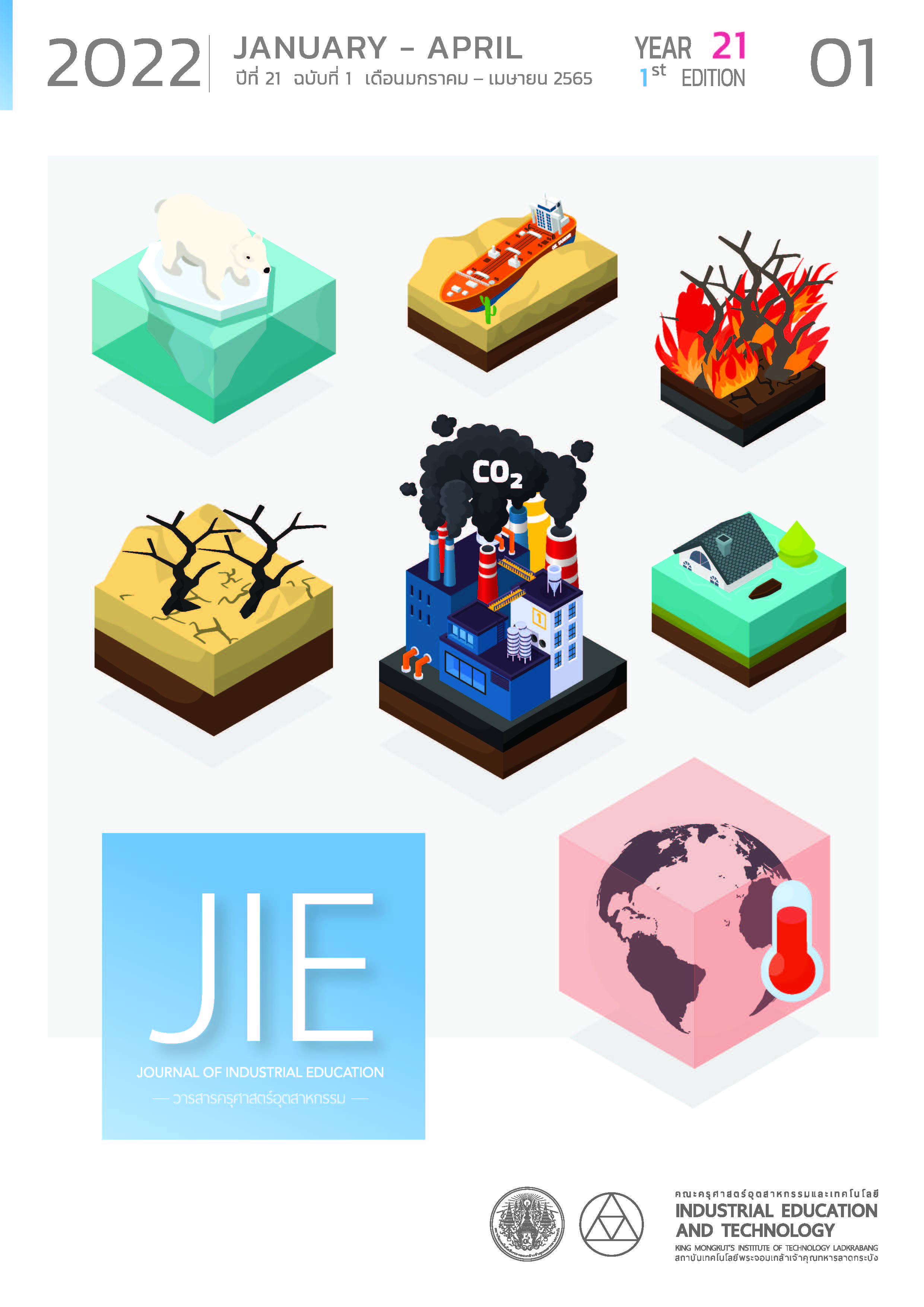THE DEVELOPMENT OF GAME MOBILE APPLICATION TO ENHANCE COMPUTATIONAL THINKING SKILL FOR PRIMARY STUDENTS UNDER OFFICE OF PHRANAKHON SI AYUTTHAYA EDUCATIONAL SERVICE AREA
Keywords:
Game for education, Mobile application, Computational thinking , Primary studentsAbstract
Computational thinking skill is the ability to think analytically, solve problems in a stepwise manner and digest problems that help you cope with complex problems. It’s an important skill and competence of Thai youth in the 21st century. In this experimental research, the researcher has developed a mobile game application that promotes computational thinking skills by playing interactive games consist of images, animation, and music that engage students to learn with fun. It also stimulates self-organized analytical thinking and a greater interest in learning. The sample group in this study was randomized 30 students in grade 6 by using the multi-stage random sampling from primary school in Phra Nakhon Si Ayutthaya province to compare students' computational thinking skills with a multiple choice test and study student's satisfaction after using a mobile game application by using a questionnaire. The statistics in this research were used mean, standard deviation, and t-test. The results showed that 1) the overall quality assessment result of the mobile game application in content view was averaged in the highest level (=4.63, S.D.=0.48), design view was averaged in the highest level (
=4.66, S.D.=0.48), and technical efficiency was averaged in the highest level (
=4.69, S.D. =0.47), 2) the student's computational thinking skills gained higher scores than before using a mobile game application with the statistical significance at .05 level, and 3) the student's satisfaction after using a mobile game application was averaged in the highest level (
= 4.56, S.D.=0.64). This learning by using the game mobile application can develop primary students' computational thinking skills and other skills in the future.
References
Barr, D., Harrison, J., & Conery, L. (2011). Computational thinking: A digital age skill for everyone. Learning & Leading with Technology, 38(6), 20-23.
Cheung, L. (2016). Using the ADDIE model of instructional design to teach chest radiograph interpretation. Journal of Biomedical Education, 2016, 1-6.
Connolly, C., Hijón-Neira, R., & Grádaigh, S. Ó. (2021). Mobile Learning to Support Computational Thinking in Initial Teacher Education: A Case Study. International Journal of Mobile and Blended Learning (IJMBL), 13(1), 49-62.
Keereerat, C. (2019). Using the problem-solving and app inventor to develop computational thinking skill for high school students. Journal of Education Studies, 47(2), 31-47. (in Thai)
Khamanee, T. (2016). Pedagogical sciences: Knowledge for organizing effective learning processes (20th ed.). Chulalongkorn University Printing House. (in Thai)
Ministry of Education. (2017). Learning standards and indicators for math, science, and geography subject groups in the learning subject group of social studies, religion and culture (updated edition B.E. 2017) according to the core curriculum of basic education, B.E. 2008. Agricultural Cooperative Association of Thailand. (in Thai)
Muangseengarm, O., Tuntiwongwanich, S., & Kiddee, K. (2020). Development of analytical thinking by problem-base learning with e-learning on two-dimensional array for vocational certificate students. Journal of Industrial Education, 19(3), 11-20. (in Thai)
Noemí, P. M., & Máximo, S. H. (2014). Educational games for learning. Universal Journal of Educational Research, 2(3), 230-238.
Ranuharja, F., Ganefri, G., Fajri, B. R., Prasetya, F., & Samala, A. D. (2021). Development of interactive learning media edugame using ADDIE model. Jurnal Teknologi Informasi dan Pendidikan, 14(1), 53-59.
Saleh, H., Fitria Nur Hasanah, N.N., Rudyanto H.E., & Mu’alimin, M. (2019). Application of Classroom Response Systems (CRS): Study to measure student learning outcome. International Journal of Emerging Technologies in Learning, 14(14), 132-142.
Shanmugam, L., Yassin, S. F., & Khalid, F. (2019). Enhancing students’ motivation to learn computational thinking through mobile application development module (M-CT). International Journal of Engineering and Advanced Technology, 8(5), 1293-1303.
The Institute for the Promotion of Teaching Science and Technology. (2018). Course guide technology (computational science). http://oho.ipst.ac.th/cs-curriculum-teacher-guide/ (in Thai)
Thienthong, M. (2011). Design and development of computer lessons. PTA Best Supply. (in Thai)
Thienthong, M. (2012). Research methodology in computer studies. DANEX. (in Thai)
Watthanatam, K., & Khlaisang, J. (2021). A study of information technology usage the needs and factors affecting the mobile application usage to enhance secondary students’ Chinese listening-speaking skills. Journal of Educational Technology and Communications Faculty of Education Mahasarakham University, 4(12), 7-18. (in Thai)
Weerapan, D., & Janchalong, C. (2019). Development of interactive multimedia mathematics for Grade 1 Students. VRU Research and Development Journal Humanities and Social Science, 14(3), 92-102. (in Thai)
Wing, J. M. (2006). Computational thinking. Communications of the ACM, 49(3), 33-35.
Downloads
Published
How to Cite
Issue
Section
License
Copyright (c) 2022 Journal of Industrial Education

This work is licensed under a Creative Commons Attribution-NonCommercial-NoDerivatives 4.0 International License.
"The opinions and contents including the words in papers are responsibility by the authors."
"ข้อคิดเห็น เนื้อหา รวมทั้งการใช้ภาษาในบทความถือเป็นความรับผิดชอบของผู้เขียน"



